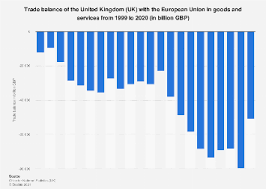🧵The Tories face perhaps the most important #LeadershipContest in almost half a century. The candidates are either second rate avatars for the triple liberal consensus (in social, economic and foreign policies) that has led us down a catastrophic cul-de-sac, or are...[1/n] 

...verging on certifiably insane in one important area of policy and are therefore unfit to lead the country. I think the exception is @KemiBadenoch. I'm not sure she can change anything, given the paucity of talent in the party and a Civil Service that is both unfit for...[2/n] 

...purpose and implacably opposed to any policy that veers outside that aforementioned disastrous consensus. Nevertheless, #KemiForPM would be the only *chance* of changing course. Here's why. 1/ Britain doesn't have problems to solve: it has an existential omnicrisis. [3/n] 

Dealing with this needs somebody who can look at the overall *systems* of governance and policy, pick a direction, and craft a series of policies that build upon each other toward that end point. It seems to me that only one candidate has grasped this. The rest are just...[4/n] 

...regurgitating the same empty lines about "dynamism" and "prosperity" and "lowering taxes to put money in people's pockets." 2/ Further, many of those problems would benefit from a STEM background, as opposed to PPE or similar. The above solution needs an engineer's...[5/n] 

...clarity of thought and systems mindset. They also need an understanding of data and what new technology can offer. We have enough PPE degrees. 3/ And, I'm afraid, at this stage, given the state of the country, Badenoch's lack of involvement in creating this mess is...[6/n] 

...an *advantage*. We cannot have more ministers who fail upward to try different versions of the same failures. No more Blairism in Blue. No more Osbornomics. No more careerists unencumbered by political principle or strategy. We can't. 4/ And the Tory Party surely can't...[7/n] 





It's not yet realised how powerful the "Time for a change" impulse will be in 2024. The Tories have been in power for TWENTY TWO YEARS. In that time, we've had declining productivity, stagnating wages, increasing income and regional inequality, sociocultural degeneration...[8/n] 







...none of the obvious problems solved (crime, immigration, housing, education, the trade balance, debt, and foreign policy grand strategy), and a general sense of inertia and cluelessness. If I were the Tory Party, I would try to get my change in *now*. [9/n] 





At the very least, she has the intellectual muscle and the rock ribs to batter Labour on its awful, divisive cultural policies and win. That would make everybody in the country with commonsense feel better and give them space to speak out and fight back. As a Briton, I...[10/n] 

...couldn't bear Hunt, Sunak, Truss, et al, pretending, like Brezhnev at the end, to be confident of improvement while trying a rewarmed and repacked version of the same failed recipe. Maybe #KemiBadenoch will be no different. But she has something about her that makes...[11/n]
...me at least *question* my cynicism. I think she gets it. I think she'll at least try. And I think she'd at least save us from a Labour-Lib-SNP coalition to break up the Union and cement Blairism for a century. It's a risk. But a risk is better than guaranteed decline. [ENDS]
Correction: twelve, not twenty two, years in power. It's late and I'm knackered.
• • •
Missing some Tweet in this thread? You can try to
force a refresh















